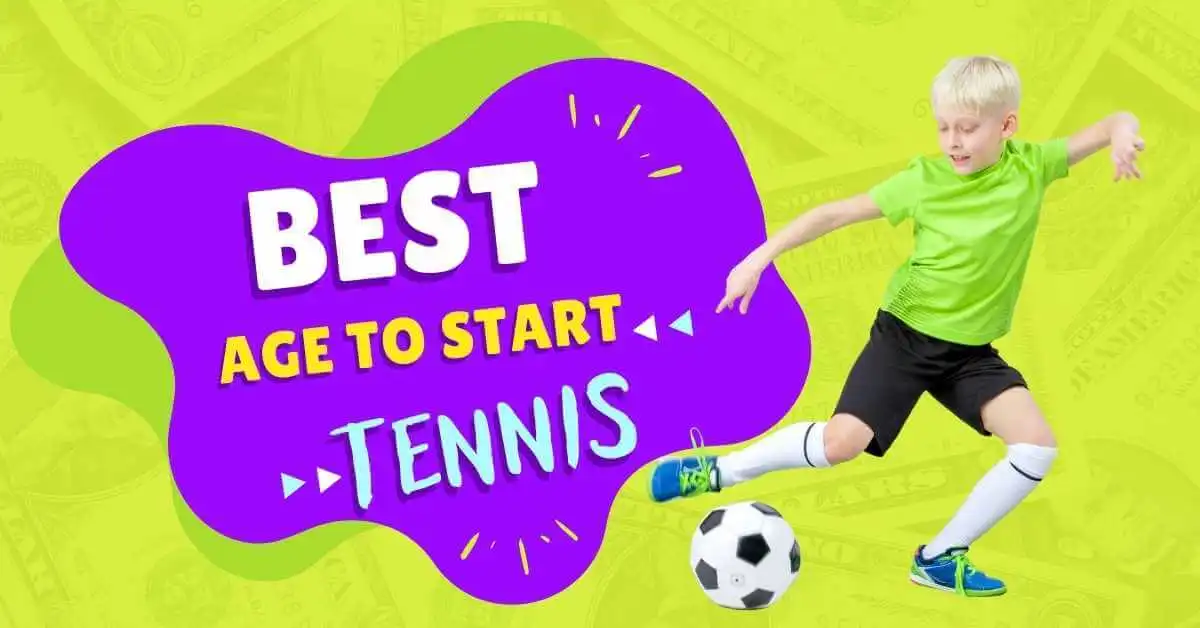John McEnroe, Pete Sampras, Maria Sharapova, Serena Williams, Venus Williams, Roger Federer, Rafael Nadal, Novak Djokovic, and others have inspired others to admire, engage in, and exhibit their skills in this sport. Many parents want to sign their children up for tennis lessons. There is one question, though, that many people are worried about. When should a child start learning how to play tennis? Is there even such a thing as a “proper” age?
1: Age to Play Tennis:
Children as young as 5-6 years old can undergo training with a trained coach, according to studies. However, there is no such thing as an ideal age to start participating in sports. Many individuals advise that you start as soon as you are interested. As a result, learning to play tennis necessitates the ability to be conscious of and regulate your muscle activities.
2: Don’t Feel Discouraged:
Toddlers as young as three or four years old have advanced motor coordination abilities. For some context, let’s look at two of today’s greatest tennis players. Rafael Nadal began playing when he was four years old, while Roger Federer began when he was eight years old. Even though getting a head start has several advantages, those who start later should not be disheartened. You can certainly climb the ladder with the correct level of work.
3: Start Early:
People that get started as soon as possible have an indisputable advantage. It’s like being a few seconds ahead of your competitors at the start of a race. The youngster develops a solid comprehension of the sport, which can lead to a strong bond and passion for it. It can also provide a significant amount of experience for the child.
4: Mentally Ready to Play Tennis:
Tennis necessitates a tremendous level of physical prowess. However, as a primarily solo game, it necessitates a significant level of mental fortitude on the part of the players to remain focused from the first to the last round.
As any McEnroe devotee would know, the pressure of the game can bring many a racquet to breaking point. This is something to keep in mind at all times. Tennis may put a lot of emphasis on a player’s specific skills, and with so much to process and understand, it can be intimidating if you start playing at a young age.
Benefits for Kids
Tennis is one of the most enjoyable sports for kids. Are you aware of the numerous privileges that participation in this activity may provide? Tennis can be beneficial to children’s physical and psychological development if they start playing at a young age. Tennis is excellent for the physical health of youngsters. Healthy muscle growth, as well as greater agility and stamina, are all benefits.
Your hand-eye coordination will surely improve after playing tennis. Do you have a child who needs to be seated for an extended period? As a result of the sport, children’s attention spans improve. How important is it to know about tennis? Tennis players have quicker reflexes and are more alert than non-tennis players.
1: It’s Fun to Play Tennis:
Any child who picks up a racquet for the first time and steps onto a tennis court will feel motivated to return. Tennis is a fantastic sport, and what better way to relax while having a good time than by playing it? It can be a useful tool for parents who want to keep their kids entertained. Parents can spend their free time playing with their children.
A tennis court is an excellent place for children to meet new people, play, relax, and have fun. Tennis encourages children to keep a happy mindset. After all, such an activity can help children acquire confidence in themselves.
2: Steps:
Keeping young children entertained throughout training sessions is essential for keeping them engaged and having fun. They should be excited to return to court the next day or week. Children’s training schedules must be modified in this way. Short, uncomplicated workouts with plenty of rest periods are the best way to go.
Parents need to recognize that their children will not become tennis masters overnight. It’s a time-consuming process that should never be rushed. Allow your youngsters to get a feel for the game. Allow them to participate and enjoy themselves. Parents can play an essential influence in determining the outcomes.
Conclusion
Keeping young children engaged throughout training sessions is necessary for maintaining them engaged and having fun. They should be excited to return to court the next day or week. Children’s training programs must be modified in this way. Short, uncomplicated workouts with enough rest periods are the best way to go.
Parents need to recognize that their children will not become tennis professionals overnight. It is a long process that should never be hurried. Allow your youngsters to get a feel for the game. Allow them to participate and enjoy themselves. Parents can have a role in the results, which will come.
Enjoy the game with your Kids!
